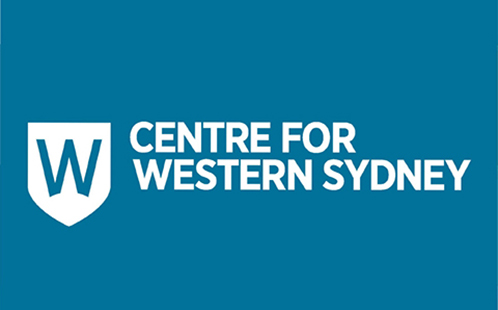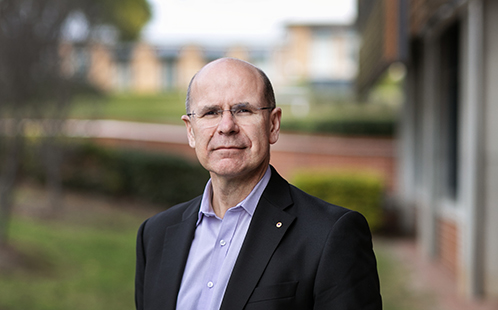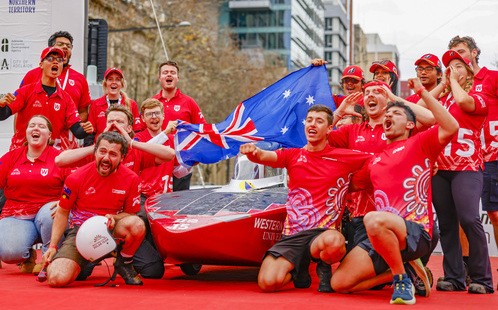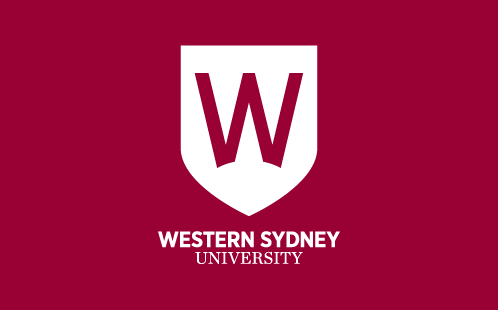Centre for Western Sydney calls for a fairer share of federal funding

The Centre for Western Sydney welcomes the Federal Budget’s cost-of-living relief, infrastructure investment, and housing initiatives but calls for a fairer share of funding to support Western Sydney’s growing population and economic potential.
Professor Andy Marks, Executive Director at the Centre for Western Sydney, highlighted that Western Sydney has long faced historical underinvestment. He called on the government to allocate at least 10 per cent of national infrastructure and reconstruction funding to Western Sydney - ensuring the region reaches its full potential and delivers for all Australians.
“Western Sydney is around 10 per cent of Australia’s population, yet the region does not get its fair share of government support for health, housing, education, jobs and infrastructure,” said Professor Marks.
“Sydney's West deserves 10 per cent of government funding, to match the size of its population and provide it per capita levels of support.
“At this election, we are asking candidates to make what we’re calling the Ten4Ten commitment - ensuring Sydney's West receives a guaranteed 10 per cent of government funding, to match its share of the population of Australia, and its growing contribution to the economy."
Professor Marks said the Ten4Ten pledge starts with healthcare, pointing to the severe GP shortage affecting Western Sydney communities. Both Labor and the Coalition have pledged to create 100 new medical places for universities to train more doctors - the Ten4Ten pledge would see 10 of those places guaranteed for Western Sydney.
Professor Neil Perry, Chief Economist of the Centre for Western Sydney and School of Business, emphasised that cost of living remains the biggest concern for residents, closely followed by housing and rental affordability. He stressed that while the government’s investment in cost-of-living support is appreciated, more targeted action is needed to address these ongoing challenges.
“Fifty-two per cent of Western Sydney workers are in the bottom two income quintiles, compared with thirty-eight per cent in the rest of Sydney, so cost of living increases hit our resident workers hard,” said Professor Perry.
“The announced tax cuts are very modest at the household level. They do not make up for the cost-of-living increases over the past three years. The tax cuts do provide more savings to low-income earners in proportional terms than high-income earners. However, this does not make up for the fact that the stage 3 tax cuts last year provided much larger savings to high-income households. In aggregate, the tax cuts over the last few years have favoured high-income earners, which is unfair.”
The Centre for Western Sydney says there is still work to do on the affordability of early childhood education and care, and healthcare. While the government has announced 50 new Medicare Urgent Care Clinics as part of a $644 million investment, the community needs to know what portion of this will be allocated to Western Sydney.
Western Sydney also has a higher proportion of people in social housing and an increase in rent assistance is needed to ensure that all Australians have access to secure and affordable housing.
“Secure and affordable housing is needed for the basic functioning of our economy. Affordable and accessible early childhood education and care increases labour force participation. Both are required to boost productivity and therefore prosperity in our economy,” said Professor Perry.
The Centre for Western Sydney welcomed the $1.8 billion energy rebate extension, the bulk-billing incentives, and the reduction in prescription costs from $31.60 to $25, helping residents afford essential healthcare.
The $1 billion commitment to securing land for the Western Sydney Airport rail corridor was also commended, but the Centre argues 10 per cent of all social and physical infrastructure funding should be dedicated to Western Sydney, with funding to connect Parramatta to the Western Sydney airport more directly, and from Liverpool to the Airport.
On the issue of housing affordability, Professor Perry said the $54 million investment in the prefabricated and modular housing industry is insufficient, arguing that Western Sydney is well-positioned to lead modern construction innovation.
“Western Sydney is in a unique position to benefit the whole nation by expanding the industry focused on modern manufacturing methods of construction. Western Sydney has higher labour productivity in building construction than in NSW and Greater Sydney more generally, and there is a historical legacy of excellence in manufacturing,” Professor Perry added.
“The Centre for Western Sydney calls on the government to allocate 10 per cent of the National Reconstruction Fund to Western Sydney, part of which should be used to build up the prefabricated and modular housing sector.”
ENDS
26 March 2025
Latest News

ABC RN transcript: Vice-Chancellor Professor George Williams discusses higher education sector, student support, and the impact of AI
The following is a transcript of an interview that aired on ABC Radio National Saturday Extra between presenter, Nick Bryant and Vice-Chancellor, Distinguished Professor George Williams AO.

Western Sydney University are the number one Australian solar car team at the 2025 Bridgestone World Solar Challenge
Western Sydney Solar Car team has crossed the finish line placing preliminarily sixth in the world overall, and the number one Australian team in the world’s most prestigious solar car challenge.

Western Sydney University Statement on Cyber Incidents
Western Sydney University has issued an update to its community following confirmation that previously stolen personal information was published online, including on the dark web.
Mobile options:

